
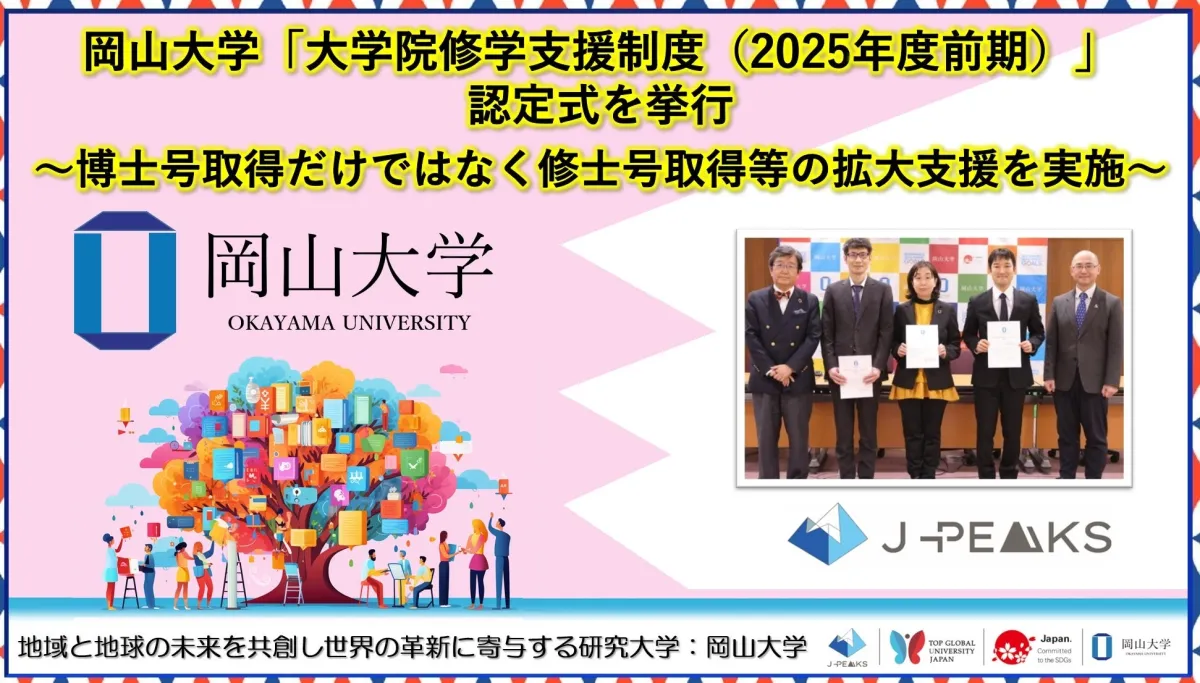
Okayama University Expands Graduate Support Program to Enhance Employee Qualifications
Okayama University Expands Graduate Support Program to Enhance Employee Qualifications
On March 27, 2025, Okayama University held a certification ceremony for its expanded graduate study support program, aimed at both master's and doctoral candidates. This initiative, introduced under the university's vision for 2050, reflects a commitment to enhancing professional development among university staff, in line with global trends where personnel in research institutions commonly hold advanced degrees.
The support program, which commenced in the latter half of 2024, initially focused on educational and research technical staff aspiring for doctoral qualifications. Now, the program has broadened its scope to include administrative staff and library personnel, allowing for the pursuit of both master's and doctoral degrees.
During the recent ceremony, four staff members were recognized for their commitment to academic advancement. This group includes Hiroshi Ueki and Ryota Kimura, both of whom are pursuing doctoral degrees, alongside Uri Nakamura and Hiroki Ueyama, who are focused on obtaining master's degrees. The selection process involved a thorough review by a committee led by the university president, featuring assessments from board members and vice presidents.
In his opening remarks, Vice President Yoshihiro Sato emphasized the program's uniqueness in Japan, where it is uncommon for universities to fully support staff's academic pursuits. He highlighted the importance of ensuring that university staff can elevate their qualifications to match the demanding landscape of research in higher education. He stated, “It is essential for progress that our institution's personnel holds advanced degrees, enabling them to qualify for higher positions and contribute effectively to their respective fields. The university covers all entrance fees and tuition costs, allowing staff to focus on their studies without financial burden.”
University President Yoshitomo Nasu also addressed the attendees, encouraging the certified individuals to embrace the journey of academic pursuit with enthusiasm and determination. He remarked, “This program is a rarity in Japan and draws significant attention. As front-runners in this initiative, do not fear failure in your path. Our administration is committed to providing strong support to help you achieve your educational goals.”
Each of the awarded staff members expressed heartfelt gratitude for the support, sharing their aspirations to apply their enhanced knowledge in their respective roles. Ueki expressed a commitment to acquire the academic and practical skills necessary to solve future challenges. Nakamura detailed his plans to broaden his learning horizon while pursuing an MBA, intending to make meaningful contributions to the university. Likewise, Ueyama looks forward to expanding his expertise and merging his academic insights with practical applications in his work.
This graduate support initiative signifies a shift at Okayama University towards a more inclusive management framework, recognizing the essential role that non-faculty staff play in university governance. Notably, university committees are increasingly led by administrative staff rather than solely by academic faculty, indicating a broadening of leadership roles.
The support program falls under the Ministry of Education's J-PEAKS project, which aims to strengthen distinctive research universities within Japan. The university is also poised to impact future educational landscapes, focusing on training knowledge workers capable of innovating solutions for contemporary societal challenges.
In conclusion, Okayama University's proactive approach in supporting staff's educational ambitions is part of a holistic strategy to foster a rich research culture. As the institution embraces changes towards a more collaborative and innovative environment, it encourages all stakeholders to engage actively in its transformative journey.
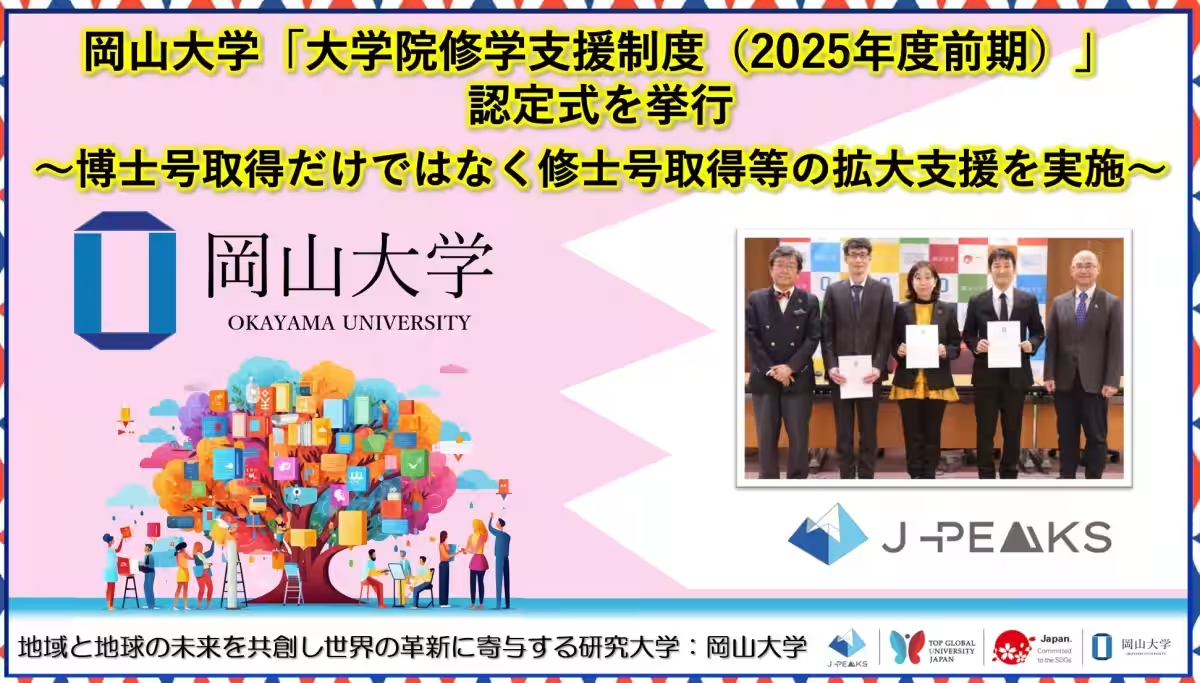
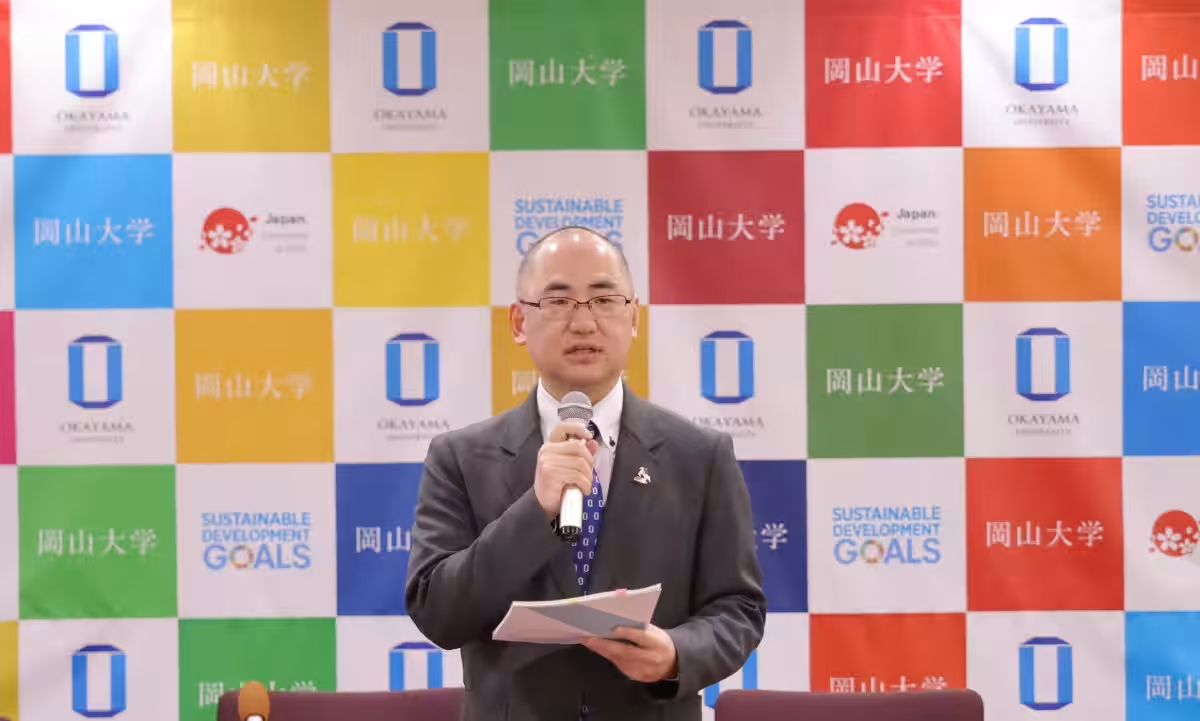
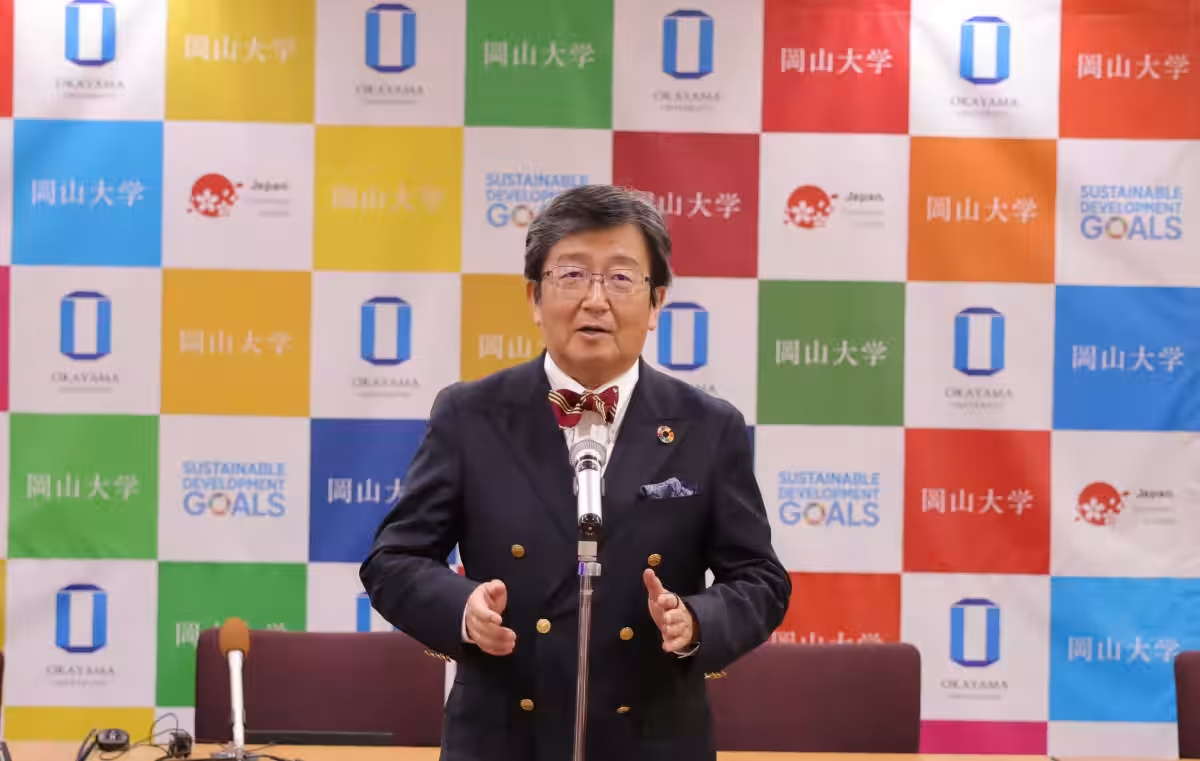
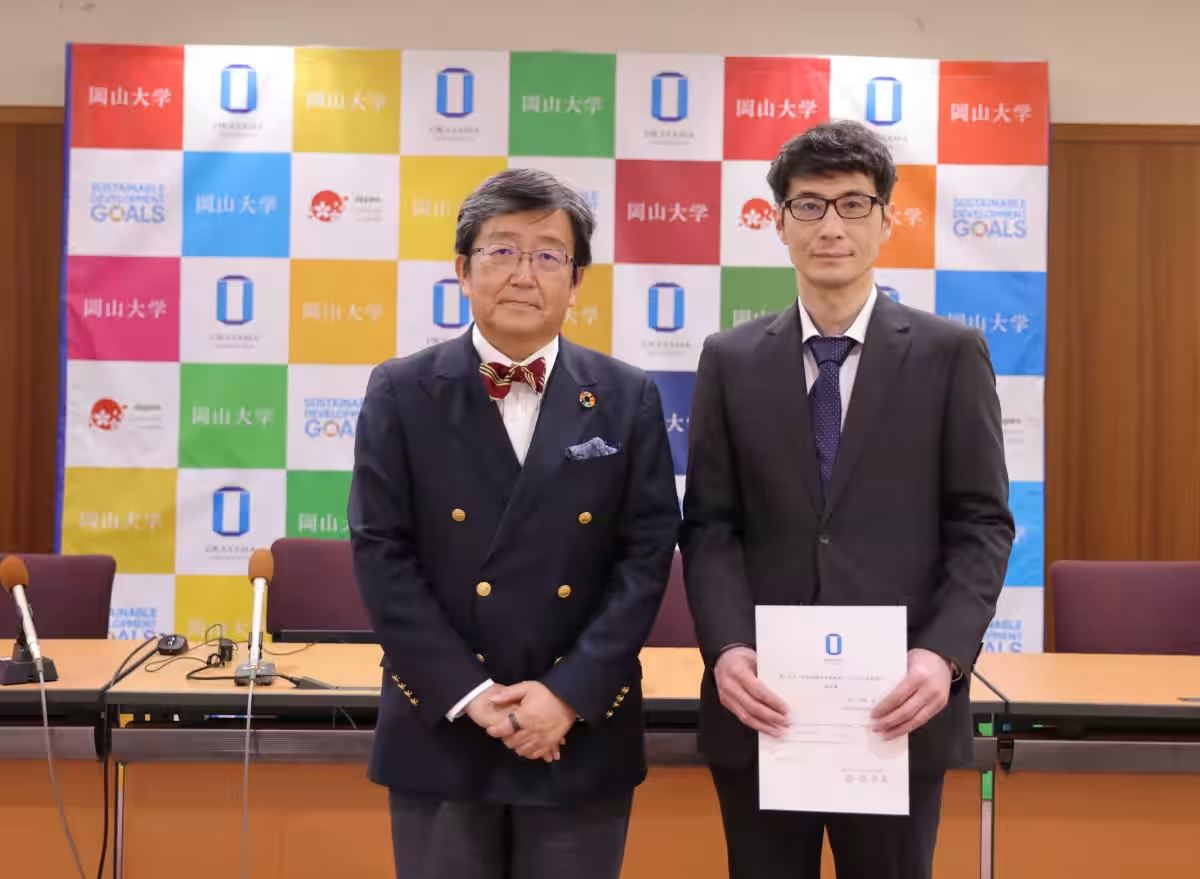
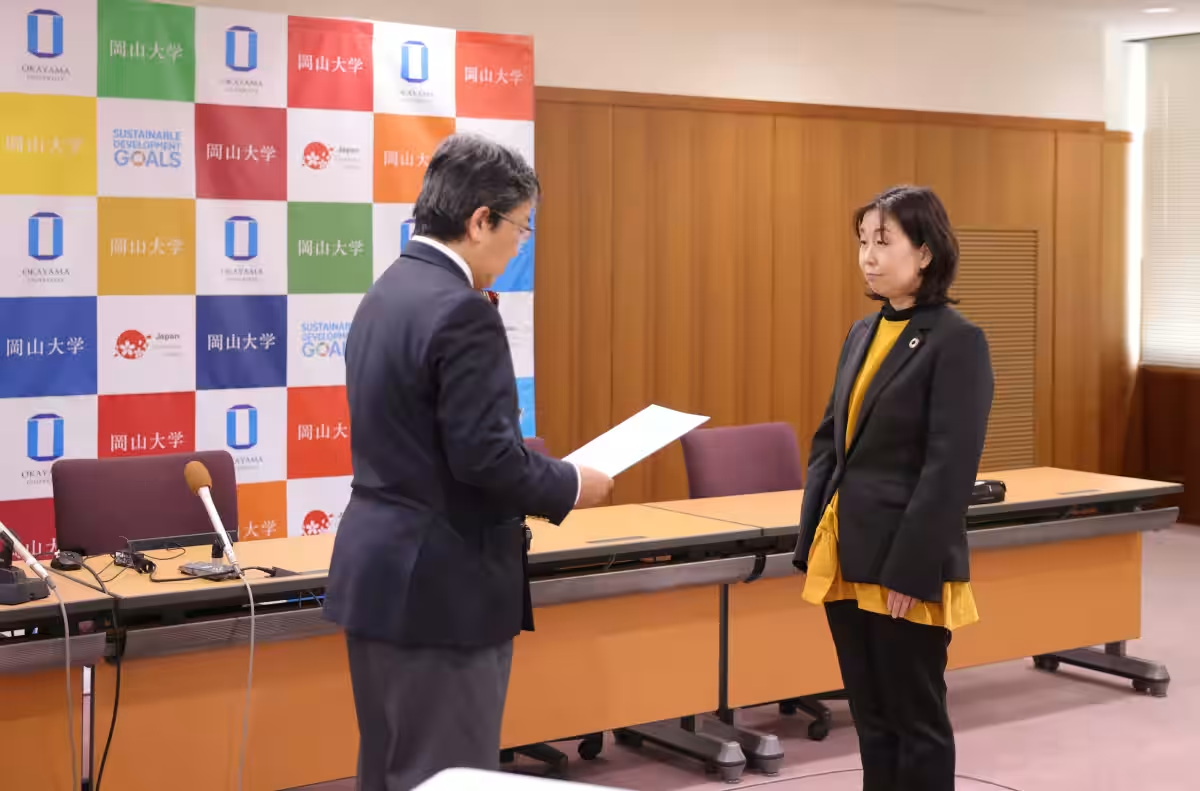
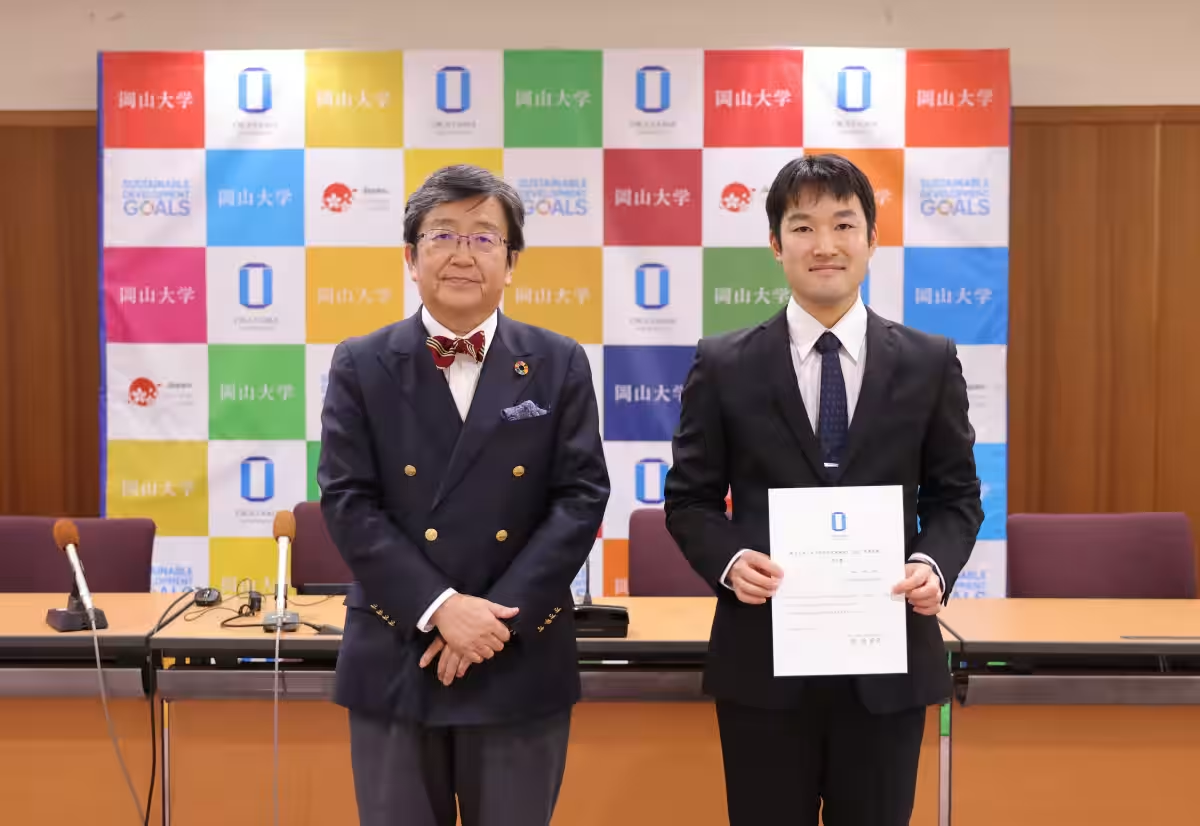
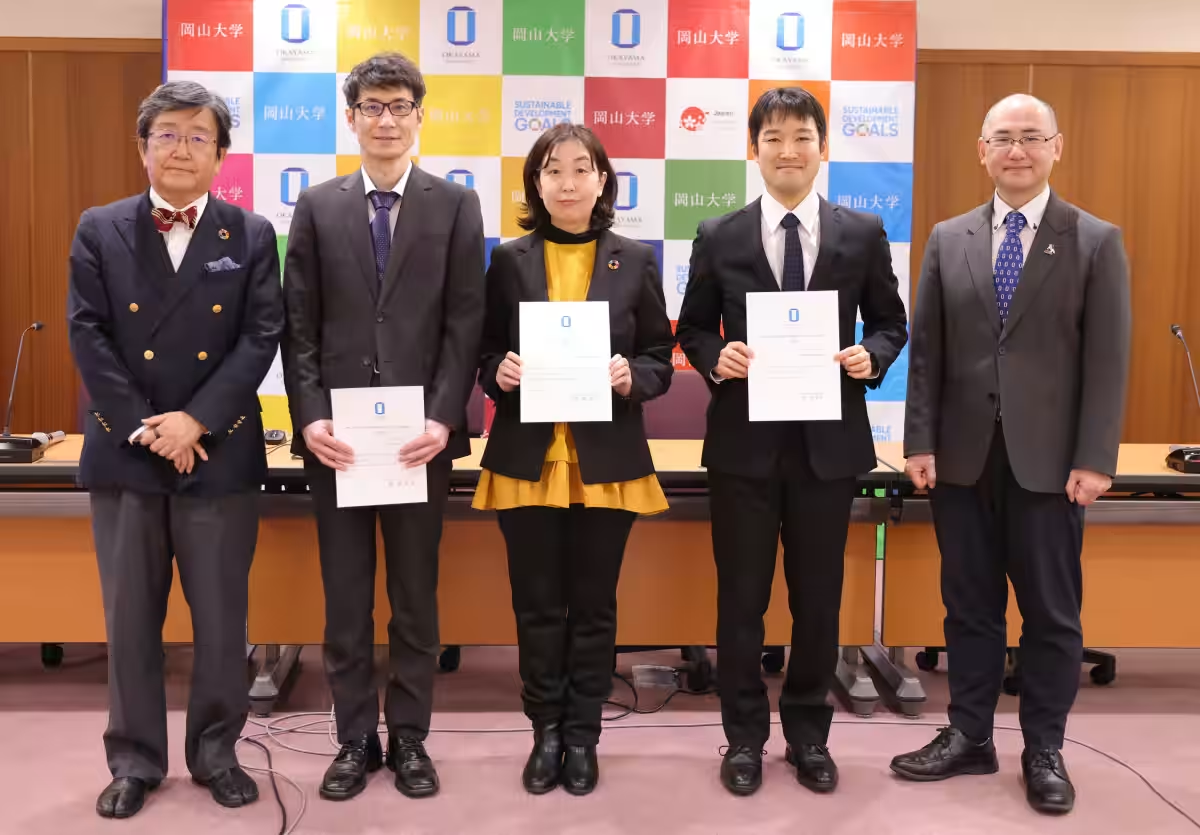
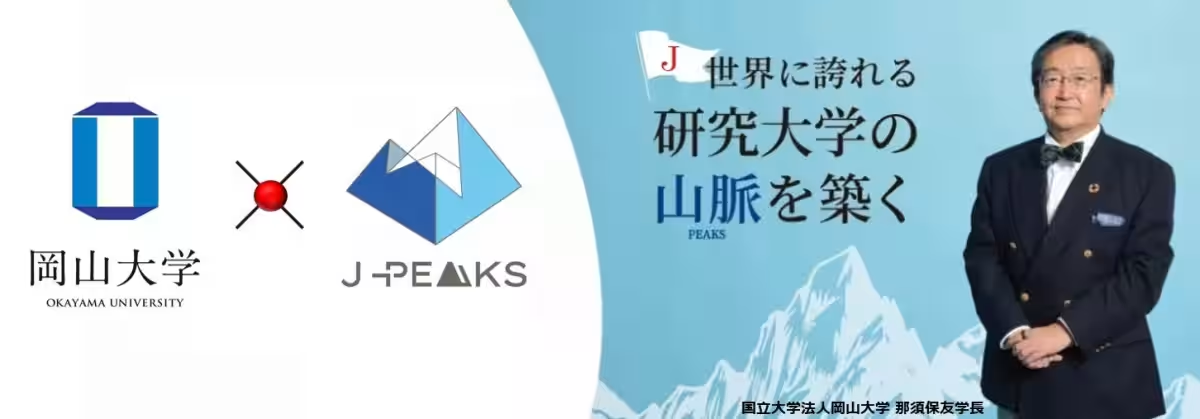
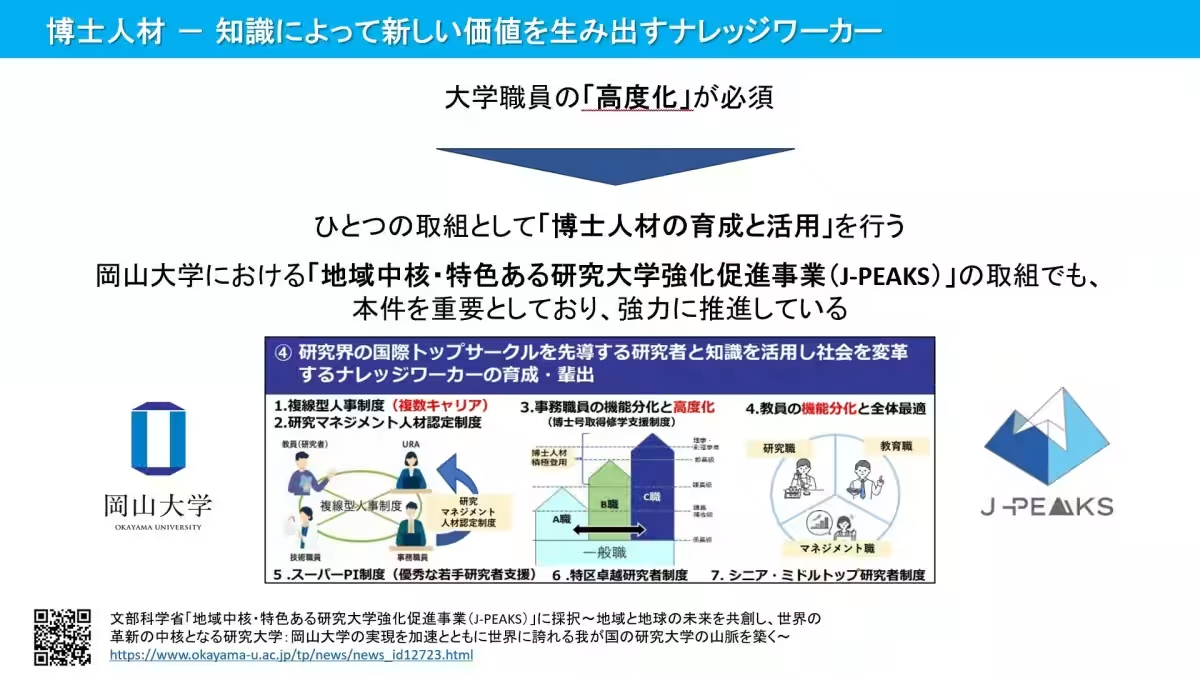
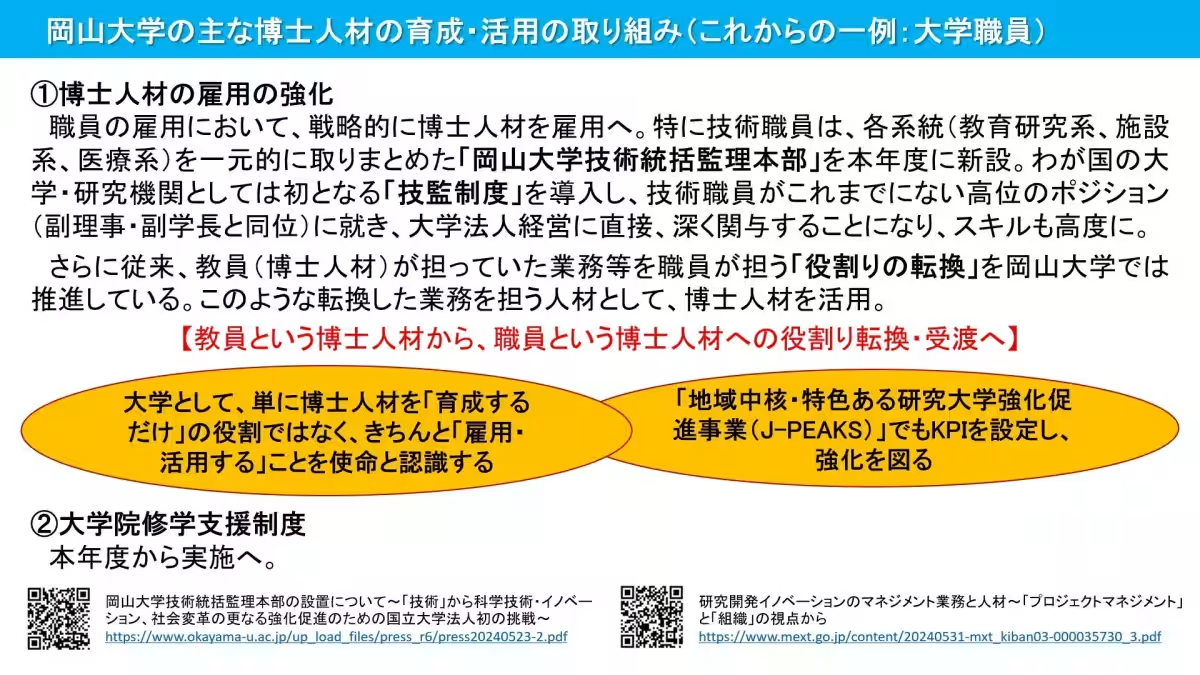
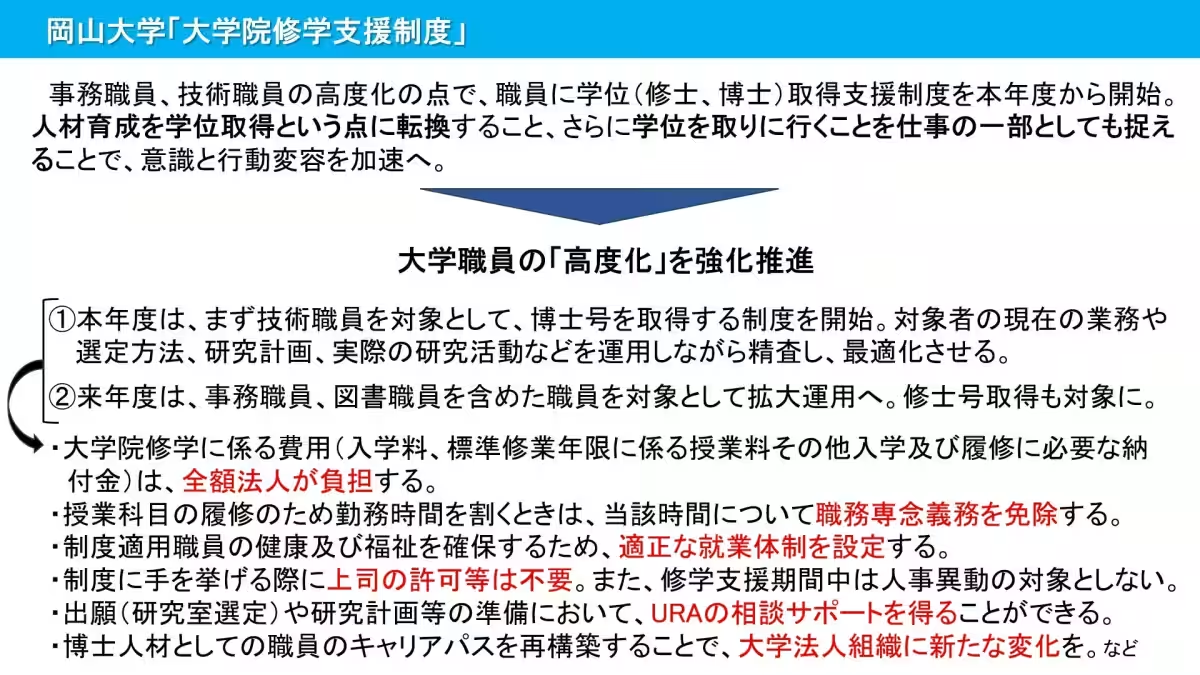
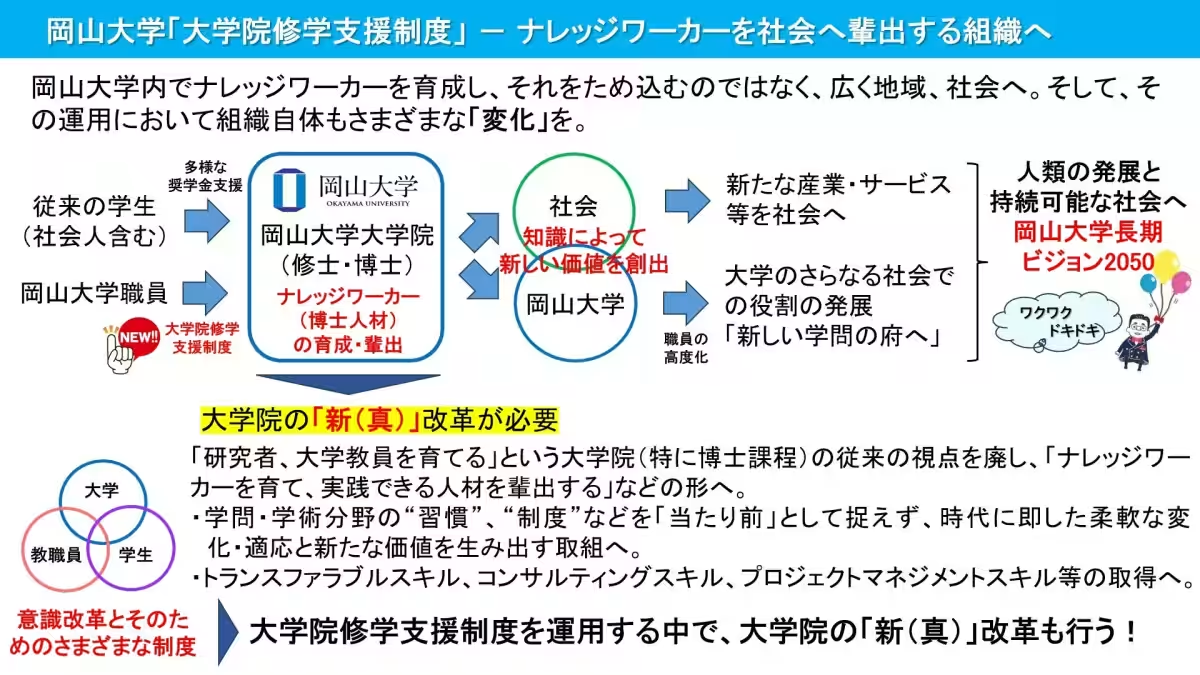
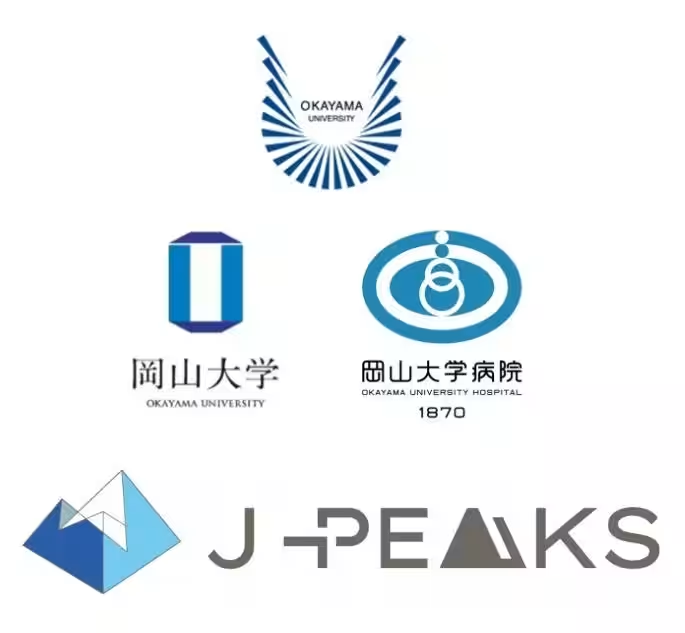

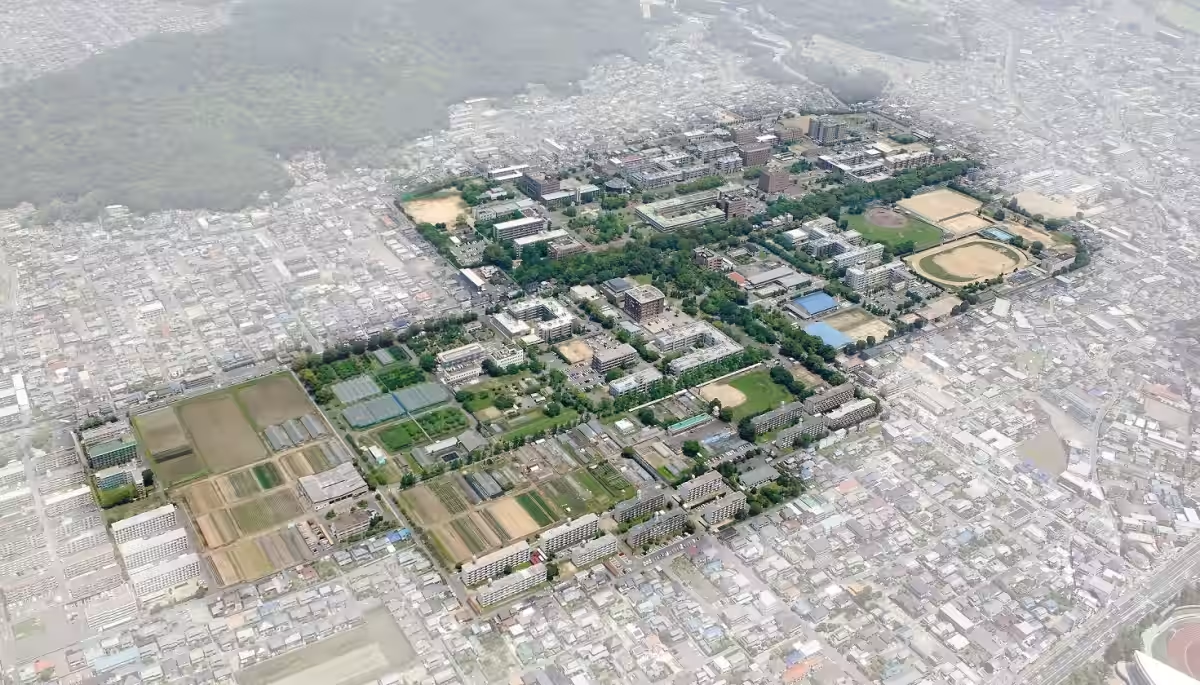
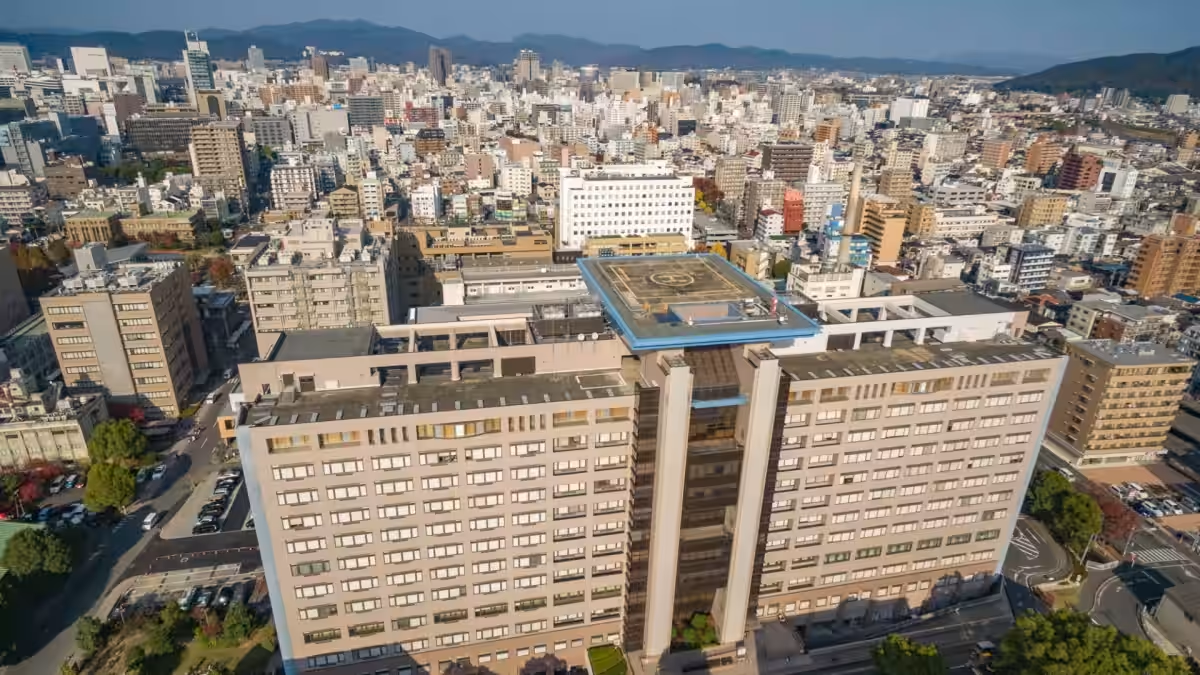
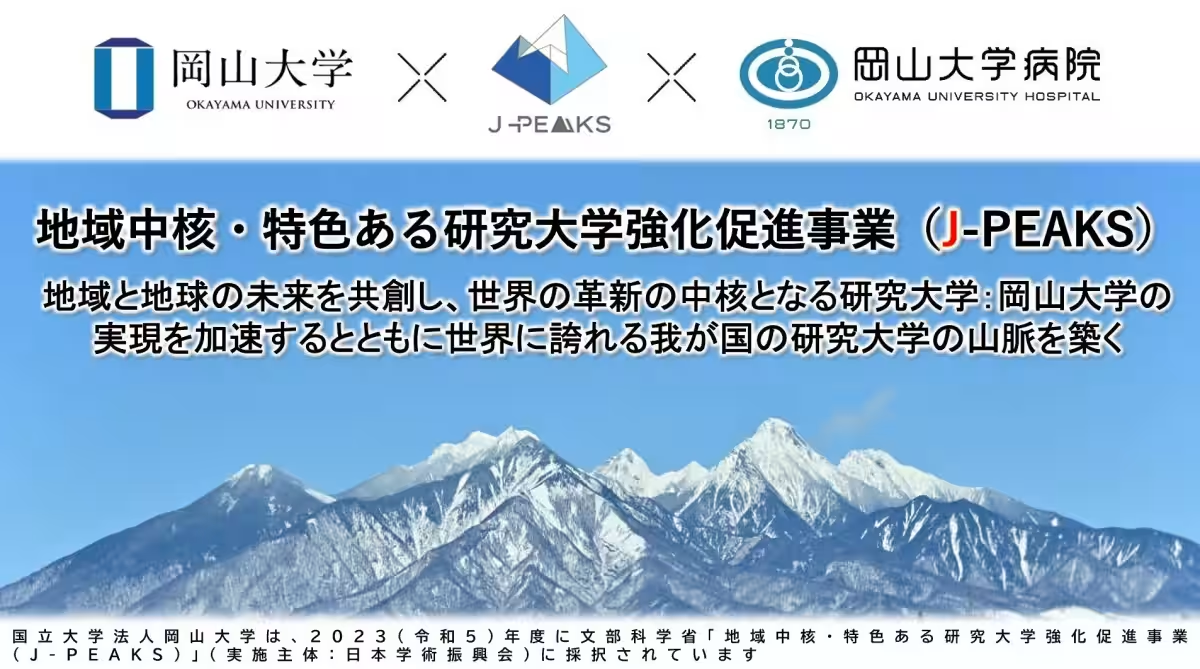
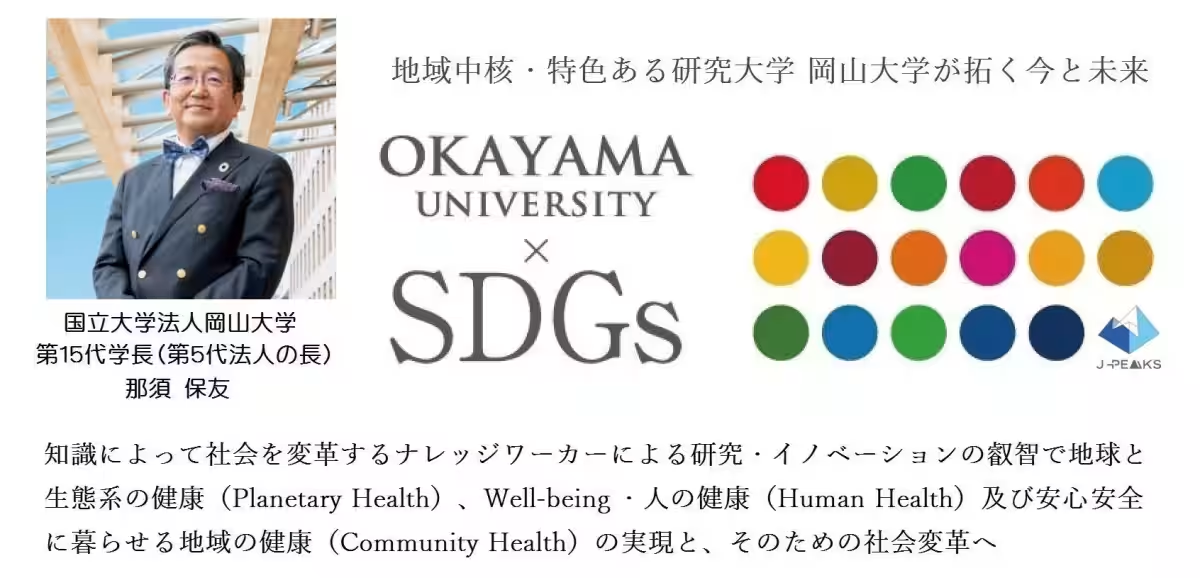
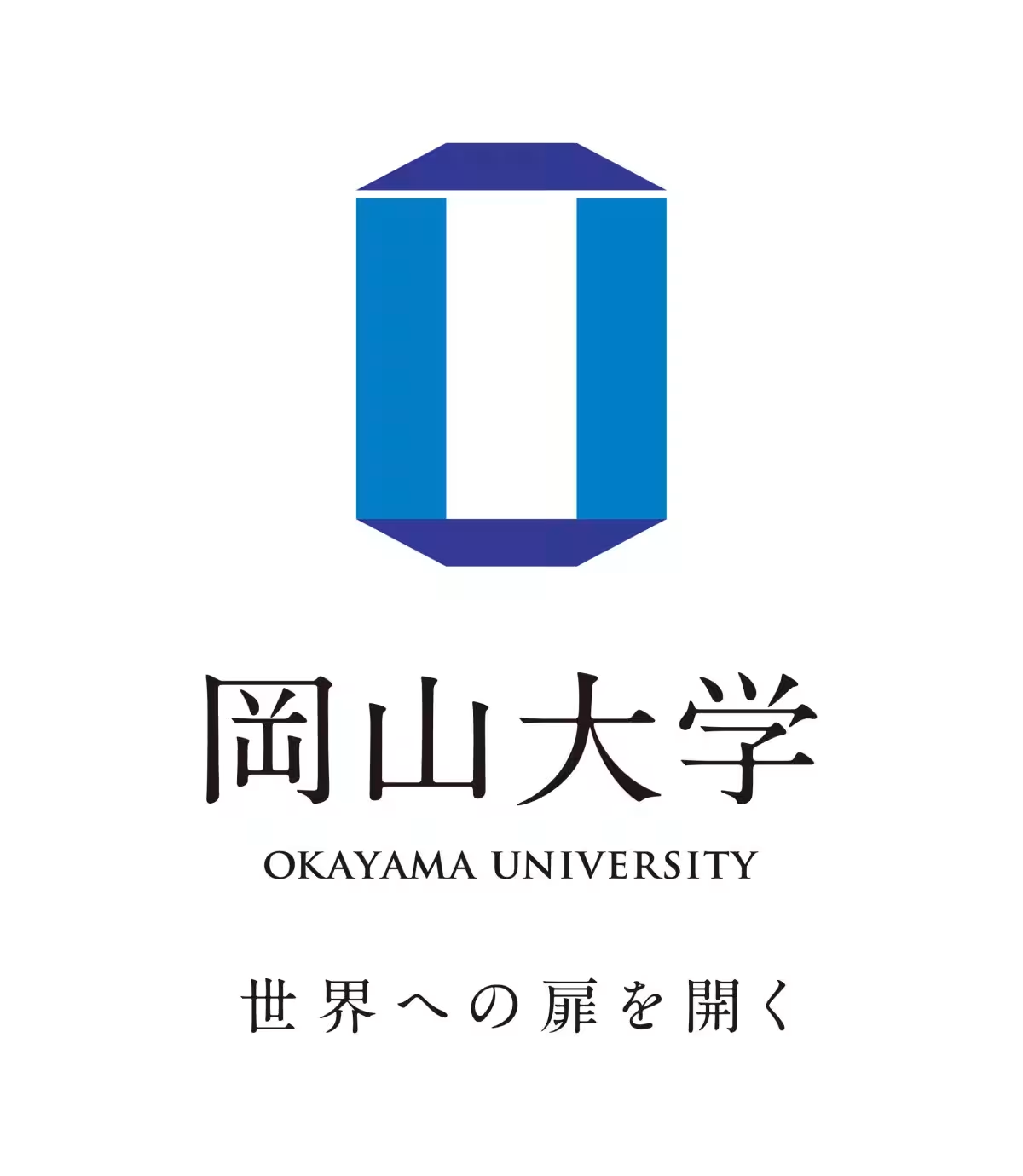
Topics Other)










【About Using Articles】
You can freely use the title and article content by linking to the page where the article is posted.
※ Images cannot be used.
【About Links】
Links are free to use.